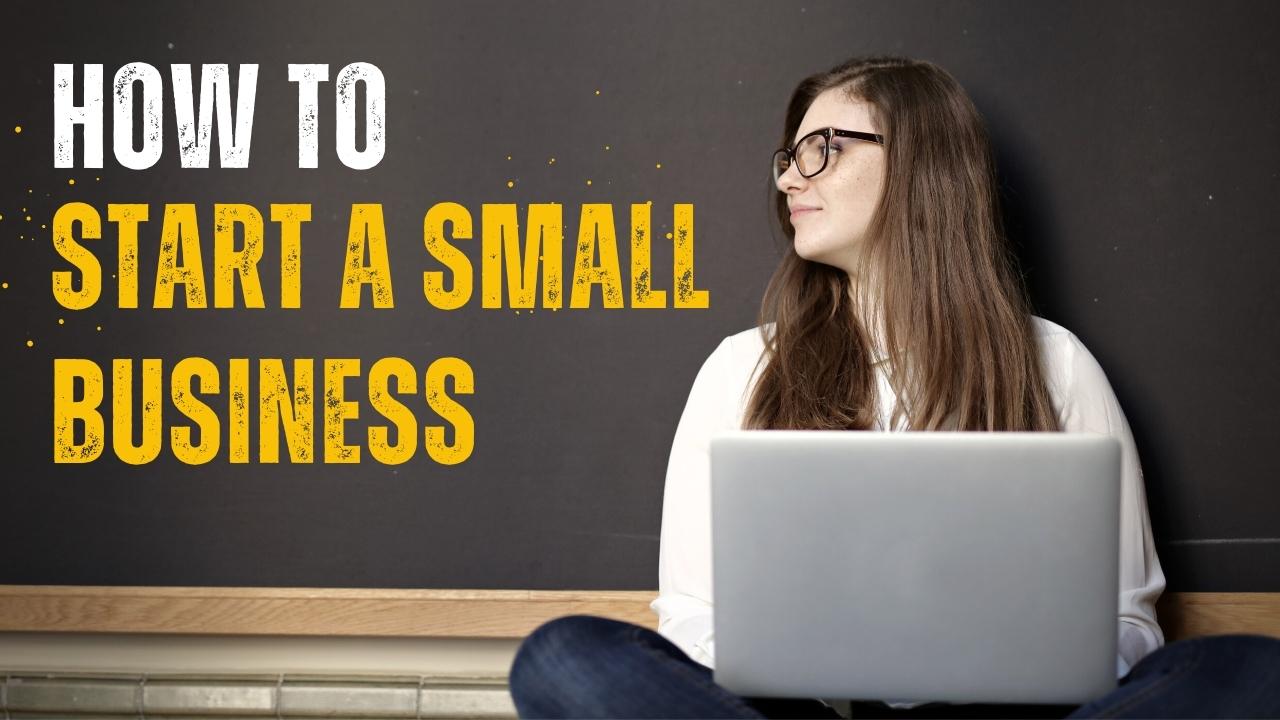Starting a small business can be an exciting and rewarding endeavour. But where do you even begin? It can be overwhelming with so many different steps and decisions to make. Don’t worry, though, because we’ve got you covered. In this guide, we’ll walk you through everything you need to know about starting a small business, from coming up with an idea to launching your business successfully.
Step 1: Brainstorming Business Ideas
The first step to starting a small business is developing a business idea. This can be one of the most challenging steps but also one of the most exciting. Here are some tips to get you started:
Identify a need in the market: Look for gaps or problems that aren’t being solved by current businesses.
Evaluate your skills and passions: What are you good at? What do you love doing? How can you turn that into a business?
Research the competition: Look at what your competitors are doing and see if there’s room for you to do it better or differently.
Step 2: Conducting Market Research
Once you have a business idea, it’s time to conduct market research. This will help you understand your target market, your competition, and the potential demand for your product or service. Here are some steps to follow:
Define your target audience: Who are you trying to reach with your product or service?
Analyze your competition: Who else is offering similar products or services? What are their strengths and weaknesses?
Determine demand: Is there a need for your product or service? How much are people willing to pay for it?
Step 3: Writing a Business Plan
A business plan is a roadmap for your small business. It outlines your goals, strategies, and financial projections. Here are some critical components of a business plan:
Executive summary: A brief overview of your business plan.
Company description: A detailed description of your business, including your mission statement, target market, and competitive advantage.
Market analysis: A thorough analysis of your target market and competitors.
Products and services: A description of your products or services and how they will benefit your target market.
Marketing and sales strategies: A plan for how you will promote and sell your products or services.
Financial projections: A forecast of your revenue, expenses, and cash flow.
Step 4: Registering Your Business
Now it’s time to make your business official. Here are some steps you’ll need to take to register your business:
Choose a business structure: Decide whether you want to be a sole proprietorship, partnership, LLC, or corporation.
Register your business name: Choose a name that is unique and not already in use in your state.
Obtain necessary permits and licenses: Depending on your industry and location, you may need to obtain specific visas and permits to operate your business legally.
Step 5: Setting Up Your Business Finances
Setting up your finances is essential in starting a small business. Here are some things you’ll need to do:
Open a business bank account: Keep your business finances separate from your finances.
Obtain a business credit card: Use this card for business expenses to build your credit and earn rewards.
Set up accounting and bookkeeping systems: This will help you keep track of your finances and make tax time easier.
Step 6: Securing Funding
Starting a small business requires money. Here are some funding options to consider:
Personal savings: Use your savings to finance your business.
Small business loans: Apply for a loan from a bank or other lender.
Crowdfunding: Raise money from a large number of people via online platforms.
Investors: Pitch your business idea to investors and try to secure funding.
Step 7: Setting Up Your Business Location
Where you set up your business can have a significant impact on your success. Here are some things to consider:
Home office: If you’re starting a business that doesn’t require a physical location, you can set up a home office.
Brick and mortar location: If you need a physical location, consider the cost, accessibility, and foot traffic.
Online presence: Even if you have a physical location, it’s essential to have an online presence to reach a wider audience.
Step 8: Hiring Employees
If you’re planning to hire employees, here are some steps you’ll need to take:
Create job descriptions: Define the roles and responsibilities of each position.
Post job openings: Advertise your job openings on job search websites, social media, and other platforms.
Interview candidates: Conduct interviews to find the best candidates for the job.
Onboard new employees: Once you’ve hired someone, ensure they receive the necessary training and information to start their job.
Step 9: Launching Your Business
It’s finally time to launch your small business. Here are some tips to make your launch a success:
Create a launch plan: Plan out your launch event and marketing strategy.
Get the word out: Use social media, email marketing, and other channels to promote your launch.
Host a launch event: Consider hosting an event to celebrate your business launch and invite your target audience.
FAQs
Q: Do I need a business plan?
A: A business plan is essential for starting a small business. It will help you define your goals, strategies, and financial projections.
Q: How much money do I need to start a small business?
A: The money you need to start a small business varies depending on the industry and your specific business. You’ll need to consider the cost of equipment, inventory, rent, marketing, and other expenses.
Q: How do I choose a business name?
A: Choose a business name that is unique and not already in use in your state. It should be memorable and reflect your business’s values and mission.
Conclusion
Starting a small business can be challenging, but you can succeed with the proper steps and resources. Use this step-by-step guide as a roadmap for your small business journey, and remember to stay flexible and adaptable as you navigate the ups and downs of entrepreneurship. Good luck!











